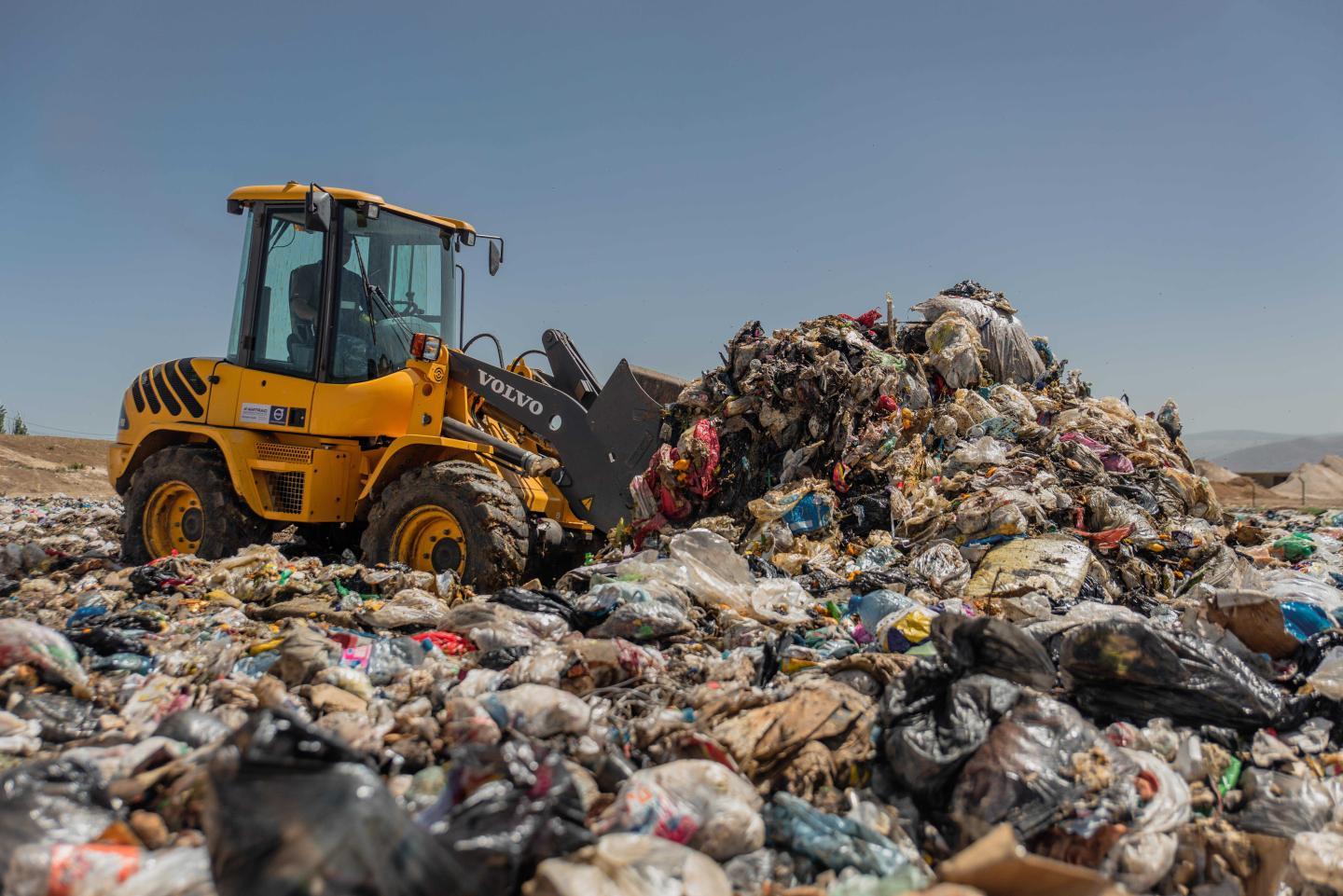
Beirut, Lebanon (Enmaeya News) — Waste piled up again in Lebanese cities and villages in early June after a strike by workers at Ramco company, sparking frustration as newly formed municipalities denied responsibility for the growing trash problem.
Lebanon’s long-standing garbage crisis risks resurfacing with every emergency, as fundamental challenges remain unaddressed. Source separation—the sorting of waste at its origin—remains elusive. Municipalities still play a limited role in waste management, sorting plants are scarce and localized, and official landfills are nearing capacity.
The crisis first erupted in 2015 when the Naameh landfill filled up, prompting efforts to introduce source separation. Several municipalities distributed color-coded garbage bags and attempted scientific collection, but improperly sorted waste was still often discarded randomly. Over time, interest waned, and some private companies began turning waste sorting into profitable businesses by partnering with municipalities to reduce solid waste and recycle materials. While some found success, others operate on a limited scale without comprehensive solutions.
Currently, 25 local startups grouped under the Waste Management Union operate across Lebanon, working on organic waste, recyclables, textiles, and electronic waste. Although a $10 million fund was allocated to support a sorting plant in Karantina, these startups expected $1 million in funding but have largely relied on self-financing amid municipal opposition.
Innovative Private Sector Initiatives
New sorting technologies are being introduced to improve waste management. For example, Nadira Technology gives residents QR codes to stick on their sorted trash bags. When these bags reach sorting plants, inspectors check their contents and use a smart app to award points for correctly sorted waste. Residents can then exchange these points for goods or services. This system encourages proper sorting and allows municipalities and companies to benefit from recycling and composting efforts.
Despite readiness, municipalities cite lack of funds as a barrier to wider adoption.
The “Yalla N7awwelha” (Let’s Convert It) platform encourages citizens to bring sorted waste to centers for weighing and payment or donation to charities. Operating in 17 locations nationwide, it returns 40–50% of revenues from plastics and waste sales to participants, while covering operational costs. Experts acknowledge the system is not a complete fix but an important step toward reducing landfill waste if municipalities collaborate.
Some municipalities, such as Ain Saadeh, briefly adopted similar plans but discontinued them. With USAID support, Bashmizein and Mishmish towns have successfully operated sorting plants, cutting waste by more than half.
Bikfaya’s Model Shows Promise
Bikfaya municipality’s innovative approach removed street trash bins and began collecting waste directly from homes for sorting and recycling, achieving near-zero waste. Using simple equipment and volunteer support, its B. Clean sorting plant has operated for nine years, composting organic waste, compressing plastics for resale, and sending residual waste for energy generation.
Experts estimate that 65% of Lebanon’s waste is organic and compostable, 25% is recyclable solid waste, and the rest non-recyclable residues. Collection and sorting require relatively modest municipal budgets, and residents are willing to participate if serious efforts are made.
Lingering Questions and Challenges
Only three sorting plants currently operate nationwide, despite 21 factories existing in various regions. The main Karantina plant remains closed following damage in the Beirut port explosion, though it can process 1,100 tons daily for Beirut and Metn.
Illegal dumping persists, with over 1,000 unlicensed dumps recorded, some in pristine mountainous areas.
Questions remain about waste policies, including a stalled law proposing polluter fees based on waste volume, municipalities’ unresolved debts to waste contractor Sukleen, and the status of the National Waste Management Authority, which was expected to be formed under the previous government.
Environmental officials continue to explore solutions, including waste incinerators. However, experts warn incinerators should only handle residual waste (about 20%), while the remaining 80% can be recycled.
As Lebanon’s new government takes office, all eyes are on whether it can deliver lasting answers to the country’s chronic waste crisis.



